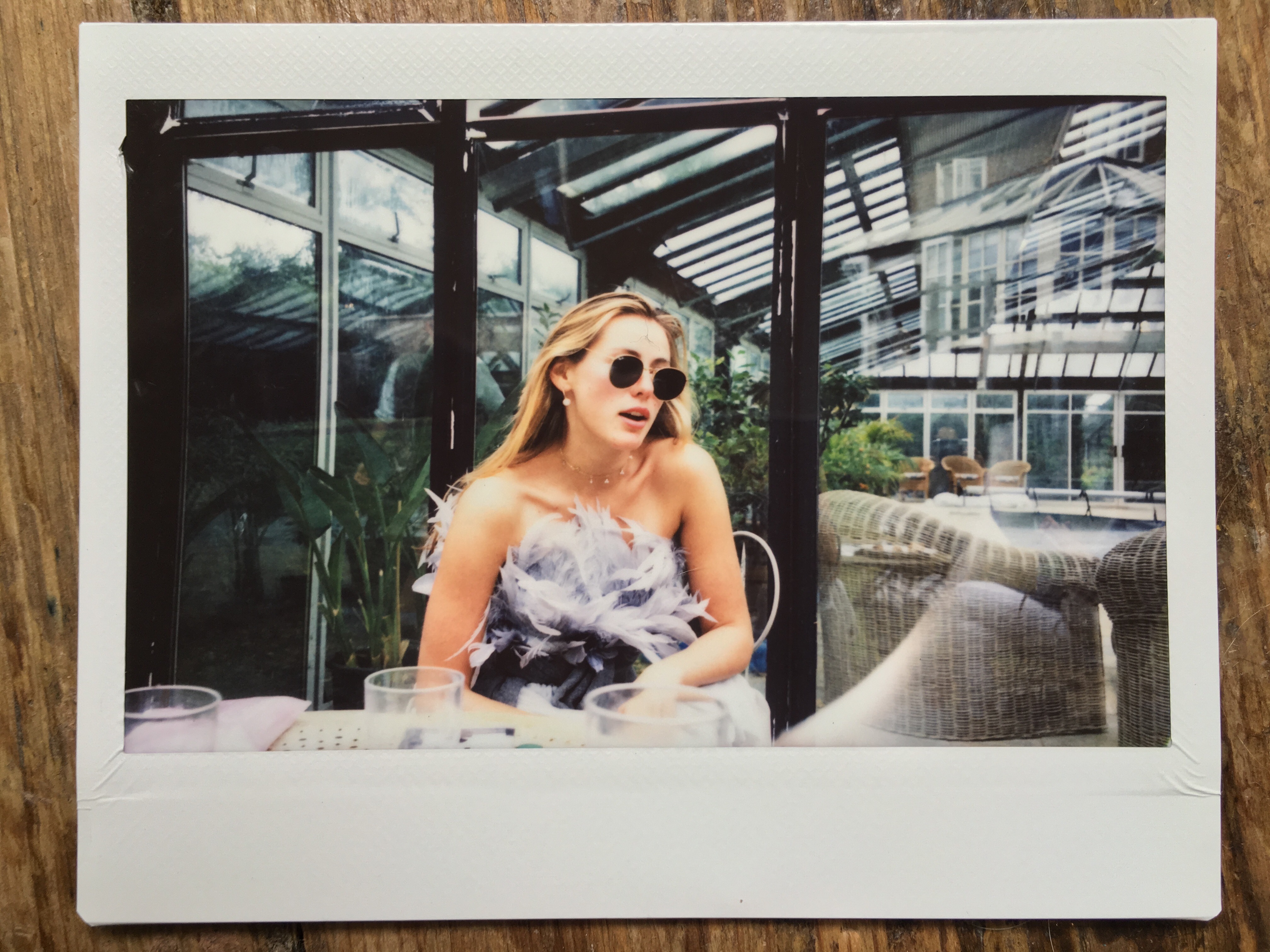
Caroline Calloway and the complicated ethics of publishing personal essays online
Micha Frazer-Carroll
11 Sep 2019
Photography via Yiggie9 / Wikimedia Commons
Last night, for the first time in years, all of my friends were reading the exact same thing. Caroline Calloway, an American Cambridge graduate with nearly 800,000 Instagram followers and a more recent reputation as a master scammer, was the subject of a newly published essay by her former best friend and ghostwriter, Natalie Beech. Jumping up into the top trends in the UK with about five tweets a minute on the topic, something about the piece, but also what feels like a cultural moment surrounding it, has stuck with me. Something doesn’t feel quite right.
Perhaps it’s also that I’ve been struggling to think of the last time a personal essay went viral. This piece, published via New York Magazine’s platform The Cut, felt like it was one of a handful of times since the personal essay’s mid 2010s heyday that people were up late, patiently waiting for the release of…an article. In Jia Tolentino’s piece The Personal Essay Boom is Over, she argues that “there’s a specific sort of ultra-confessional essay, written by a person you’ve never heard of and published online, that flourished until recently and now hardly registers.” But Natalie’s article has started me thinking about the fact that although the context has changed, there is still a space for viral personal essays – the exposé of the influencer was being talked about on my timeline as if it were an album drop. But this level of virality also presents a moral consideration for all parties involved; the piece is incredibly candid and describes both Natalie’s personal and sexual trauma, and Caroline’s Adderall addiction. As gal-dem’s first person editor I consider the implications of personal essay writing every day, and I can’t help but feel that pieces like this expose all of the moral conundrums that come with the genre.
“Writers may come away with around £50–100 for sharing gut-wrenchingly traumatic stories”
Personal essays can be life-changing and affirming at best, but exploitative at worst. Across the industry, women and in particular women of colour are encouraged to share our most personal and traumatic experiences, whether that be friendship or relationship breakdowns, racism, or details of our sex lives, as a route into being taken seriously as writers. That’s not to say exploitation is always direct, unidirectional or clear cut – after all writing about my life was how I first got into journalism, and often sharing my own experiences felt reaffirming, allowed me to reach out to others, and helped myself and readers find solidarity on difficult topics. Even now I feel like I did it because I enjoyed it and found it cathartic, not because I was forced to.
But that’s not to say big platforms like The Cut and others don’t hugely benefit from hosting personal stories on their platforms. Essayist Sarah Hepola told Jia the boom was economically efficient for publications: “a response to an online climate where more content was needed at the exact moment budgets were being slashed.” Meanwhile writers may come away with around £50–100 for sharing gut-wrenchingly traumatic stories. Like many others, back in 2015 I’d write about myself for free – which was also built into the business models of a number of sites like the Huffington Post, The Tab and Medium. Clout, exposure and the potential for virality were seen as payment enough, but sometimes when writers bear their souls, that reward doesn’t feel tangible. Freelance writer Jane Harkness, who once amassed seven million hits on a piece she won’t name, writes about how little that abstract figure actually meant to her: “I will probably never have an article get that many views again, and frankly, I do not care.”
Another moral consideration is the backlash can ensue. In Natalie’s case, and in the case of so many other women writing about their opinions and experiences online, they become open to scrutiny on a mass scale that they are not always entirely prepared for. Editors often choose pitches that are salacious or controversial (My Family’s Slave being the most notorious example). And sometimes backlash isn’t anticipated – just last month a personal essay in the Guardian sparked anger on Twitter when the writer discussed her experience travelling in Barbados but seemingly drew all the wrong conclusions. Readers also directed scrutiny towards editors after The Cut published an opinion piece on Priyanka Chopra and Nick Jonas that saw the writer get a substantial amount of heat online. The piece was eventually taken down. Even the most vulnerable, seemingly inoffensive essays can invite complete strangers to voice their opinions on your family, personal life and most intimate experiences. When I write deeply personal pieces for national platforms I still ask for the comments to be closed.
“Personal exposés often implicitly ask us to form a moral judgement about a situation much like any TV show, family drama or piece of gossip. Are you a Natalie or a Caroline?“
Personal essays not only have the potential to exploit writers themselves, but also those implicated in what they write about. A cursory glance at Caroline’s Instagram today shows readers moving towards her comments section to share their opinions. Commenters say: “Fake followers, fake writer, living off parents money, exploiting others like it was a full time job” and, begrudgingly, “Jesus, why did I need to know you both exist”. More than a dozen comments also simply riff off of the mystery of disappearing Yale crockery described in the article: “okay but what happened to the plates though”. When there’s drama, essays situate us in the fallout and can lead us to feel we deeply understand the dynamics of a situation. Exposés like Natalie’s often implicitly ask us to form a moral judgement about a situation, much like any TV show, family drama or piece of gossip: are you a Natalie or a Caroline? But it’s easy for us to forget that we are discussing potentially painful parts of someone’s real life – albeit someone who has behaved in a toxic way, and willingly positioned themselves in the public eye. It’s complicated.
I’m left thinking about the purpose of the personal essay as we move into a new decade of online writing, and how we make the genre responsible. Journalist Rachael Krishna said: “I am glad collectively that there is less of an appetite for people ripping open their scars for traffic, but there still needs to be a big discussion around the responsibility editors have when commissioning personal work.” That conversation needs to begin now.
Offering anonymity to writers or subjects can be one way to get around this problem. Natalie’s story does what any good personal essay does – it tells a first-person story but ultimately seeks out both glimmers of relatability for its audience, and an overarching message. Do writers and their subjects have to be named for essays like this to connect deeply to readers? Most likely not, but then again, anonymity isn’t always good for reliability, legality, or for traffic.
“Writers should be made fully aware of what might happen when a piece goes viral – which includes potential media attention, hate mail and sometimes long-buried traumas coming to the surface”
Another way to ensure that editors can make personal essays responsible is making writers fully aware of what happens when a piece goes viral – which includes potential media attention, hate mail and sometimes long-buried traumas coming to the surface. If you’re someone who writes about your life online, it’s worth considering these things too, as well as being fully aware of what happens for those implicated in our writing. The bottom line is you should never feel like you have to “tell all”. Meanwhile, as readers, we need to remember that we’re reading about real people.
Jia says that the personal essay boom is over. But the popularity of pieces like Natalie’s demonstrate that we’re not quite finished with them yet. I think we will have to grapple with the ethical issues raised by personal writing online for some time to come, after all, personal essays existed before sites like Medium and will exist after them too. There is always something that draws us in about hearing stories straight from the source; like a green-ringed Instagram story sealed for close friends only, it’s an unfiltered snapshot of something we aren’t normally allowed to see.









